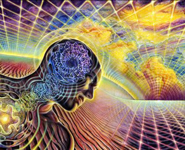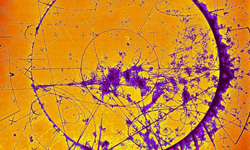   |
||
 |
To Explain The World: The Discovery of Modern Science |
Purchase Tickets Season Tickets for this event are available at 503-819-8365 or online here! |
|
||
Steven Steven Weinberg holds the Josey Regental Chair in Science at the University of Texas at Austin, where he is a member of the Physics and Astronomy Departments. His research on elementary particles and cosmology has been honored with numerous prizes and awards, including in 1979 the Nobel Prize in Physics and in 1991 the National Medal of Science. In 2004 he received the Benjamin Franklin Medal of the American Philosophical Society, with a citation that said he is "considered by many to be the preeminent theoretical physicist alive in the world today." He has been elected to the US National Academy of Sciences and Britain's Royal Society, as well as to the American Philosophical Society and the American Academy of Arts and Sciences. He is the author of over 300 articles on elementary particle physics. His books include Gravitation and Cosmology -- Principles and Applications of the General Theory of Relativity (1972); The First Three Minutes (1977); The Discovery of Subatomic Particles (1983, 2003); Elementary Particles and The Laws of Physics (with R.P. Feynman) (1987); Dreams of a Final Theory -- The Search for the Fundamental Laws of Nature (1993); a trilogy, The Quantum Theory of Fields (1995, 1996, 2000); Facing Up --- Science and its Cultural Adversaries (2002); Glory and Terror -- The Growing Nuclear Danger (2004); Cosmology (2008); and most recently Lake Views (2010). Articles of his on various subjects appear from time to time in The New York Review of Books and other periodicals. He has served as consultant at the U. S. Arms Control and Disarmament Agency, President of the Philosophical Society of Texas, and member of the Board of Editors of Daedalus magazine, the Council of Scholars of the Library of Congress, the JASON group of defense consultants, and many other boards and committees. Educated at Cornell, Copenhagen, and Princeton, he also holds honorary doctoral degrees from sixteen other universities, including Chicago, Columbia, McGill, Padua, Salamanca, and Yale. He taught at Columbia, Berkeley, M.I.T., and Harvard, where he was Higgins Professor of Physics, before coming to Texas in 1982.
|
A masterful commentary on the history of science from the Greeks to modern times, by Nobel Prize-winning physicist Steven Weinberg—a thought-provoking presentation by one of the most distinguished scientists and intellectuals of our time.
|
|